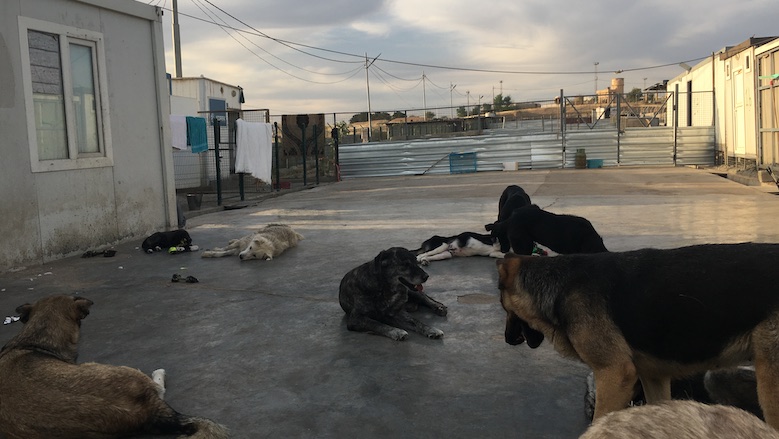US ban on dog imports cuts path to safety for Iraq’s strays

ERBIL (Kurdistan 24) – A US ban on dogs imported from more than 100 countries goes into effect this week, ending a critical lifeline for stray animals rescued from the streets of Iraq.
Starting on June 14 dogs that have spent more than six months in countries classified as high-risk for rabies will not be permitted to enter the United States without a special permit, the Centers for Disease Control and Prevention (CDC) announced earlier this summer. Permits will not be issued for rescue dogs.
The ban is set to last for at least a year and will affect about 1 million dogs.
The short time between the announcement, on June 14, and the day it goes into effect has left charities scrambling to relocate dogs from 113 countries on the high-risk list, including Iraq.
Dog rabies has been eliminated in the US since 2007, according to the CDC, which estimates that 6 percent of all dogs imported into the country arrive from countries classified as high-risk. Unvaccinated dogs can still contract rabies from bites from other animals, and pass the disease to humans.
Rabies is fatal to dogs and people, and the ban comes after the CDC found that 450 dogs had been imported into the US with falsified rabies certificates in 2020, a more than 50 percent increase over the previous year.
“Thousands of dogs in rescues in developing countries will die” due to the ban, Louise Hastie from the dog rescue War Paws told Kurdistan 24.
Dogs now in rescues across developing countries are now at risk of being euthanized to make room for new dogs, and shelters will have to close their doors to animals in need, she explained.
UK-based War Paws relocates stray dogs from war zones and conflict areas to the US, UK, Canada, and European Union, and helps foreign soldiers from those countries bring home dogs they bond with on deployment.
The charity supports the Animals of Kurdistan shelter in the Kurdistan Region’s capital, and recently helped relocate five dogs from the region to the UK. Roughly 200 dogs are living inside the shelter on the outskirts of Erbil and staff care for hundreds more on the property and around the capital.
No official survey on the number of stray dogs has been done in the Kurdistan Region, but Hastie said that there are likely tens of thousands.
Authorities in Iraq regularly authorize the wide scale poisoning and shooting of stray dogs.
Hastie acknowledged there are "issues with extreme rescues who are forging paperwork,” but overall blamed the unscrupulous “puppy industry” for the problems as they keep money-making puppies in poor conditions and export potentially sick dogs to the US.
Dogs from pet shops often end up on the streets if they have health problems, contributing to the stray dog population.
Animal welfare organization SPCA International warned in June after the ban was announced that it “will put huge numbers of healthy dogs at risk if they can’t travel to the US safely to their adoptive homes.”
The SPCA instead proposed a mandatory quarantine period and rabies serology test, similar to regulations in place in the UK.
The process of relocating dogs from the Kurdistan Region to Europe or the US can be stressful and complicated and numbers are limited due to the waiting times and expense of flying them thousands of kilometers.
That cost, which can be in the thousands of dollars for one pet, sometimes leads people to abandon their dogs in local parks or on the streets when they leave the country.
“Every single day I get a call from the shelter for some dog or other that has been dumped and badly injured,” Hastie said.
“If we could ever get an airline to donate a cargo flight we could bring a bunch back all at once,” she added, but the new ban has now eliminated that possibility as well.